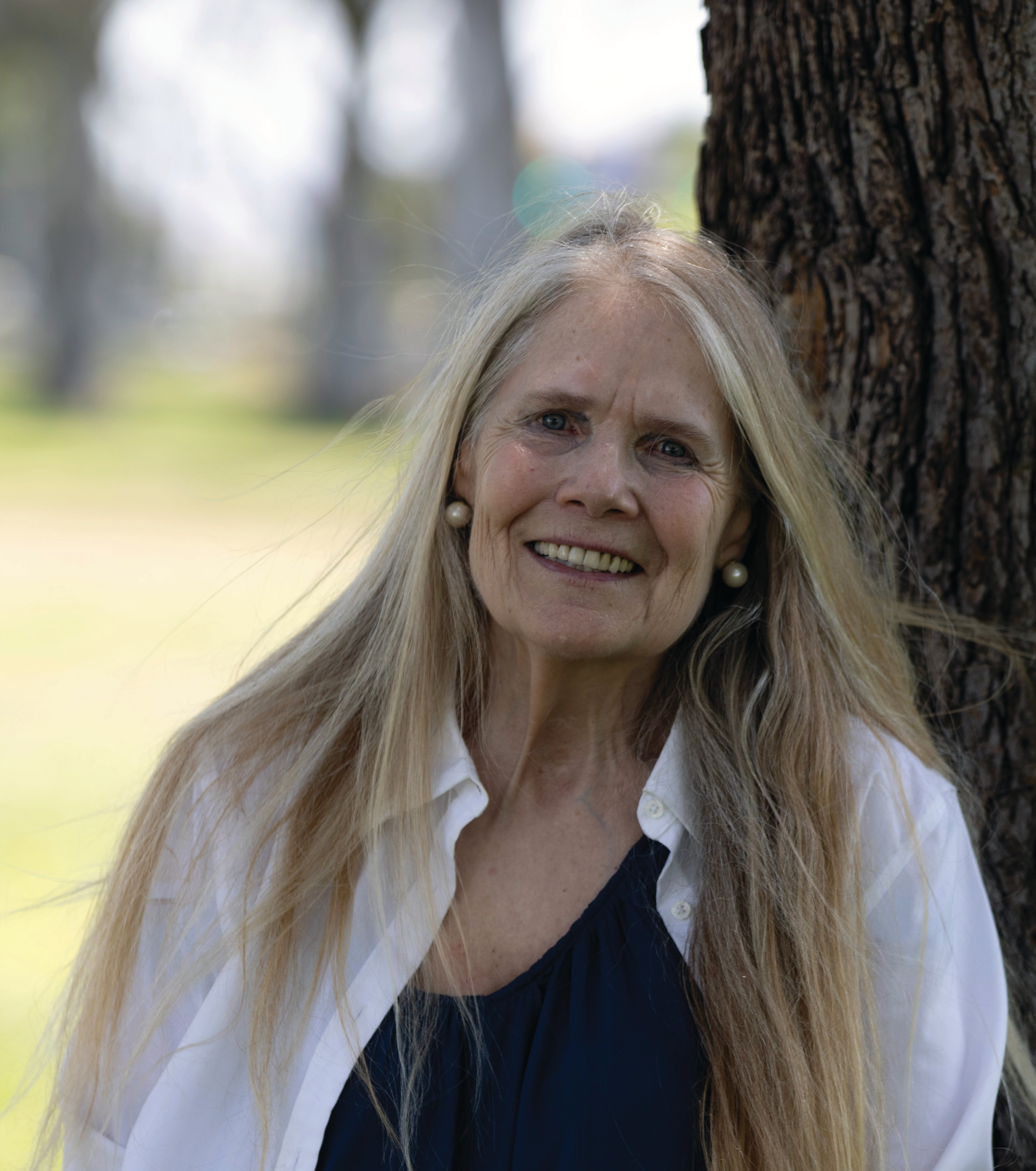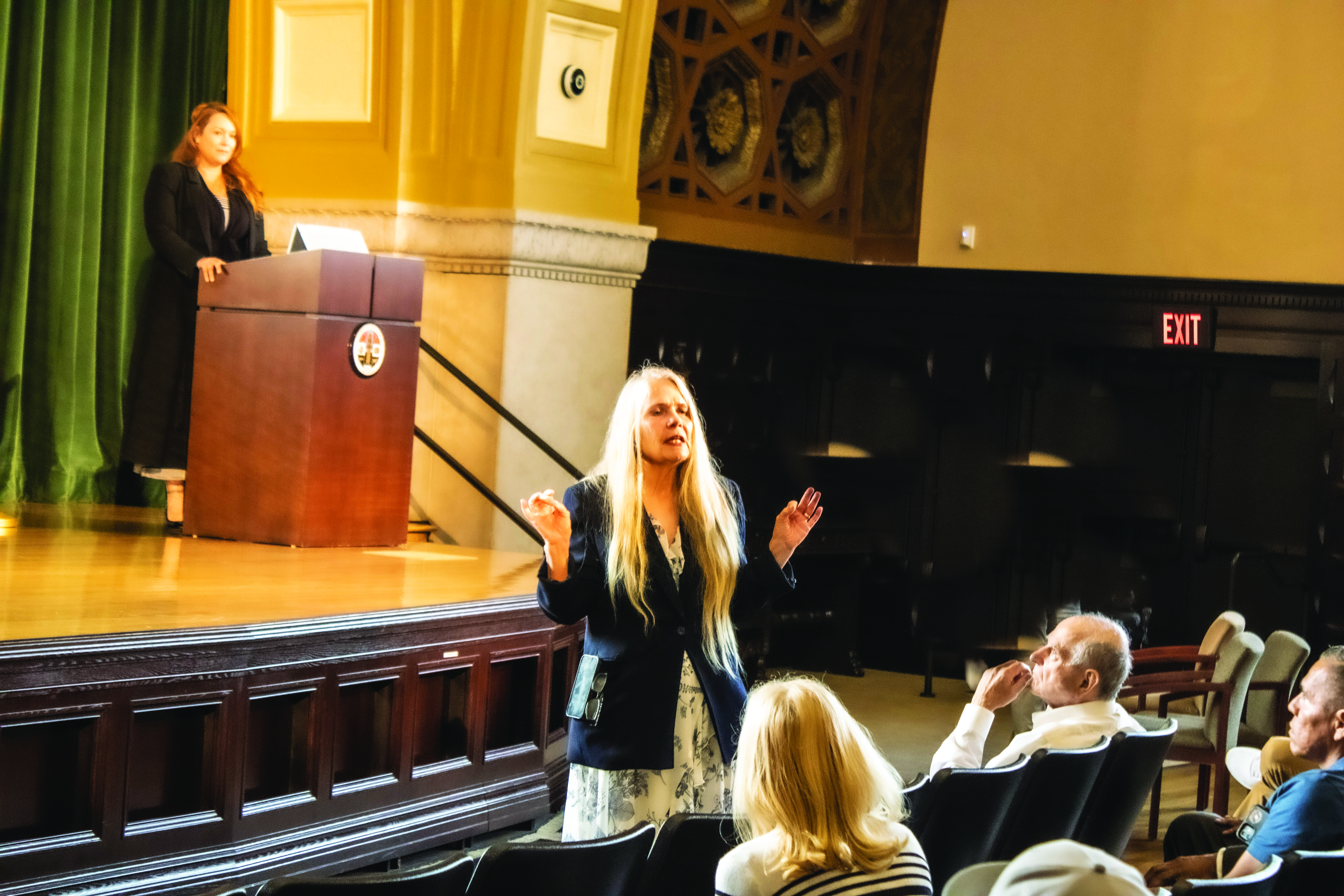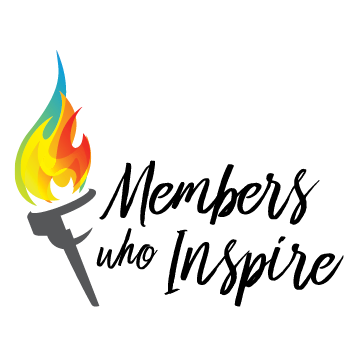Community Veteran Justice Project founder helps vets navigate legal needs

Jodi Galvin (Photo by Deborah Connelly)
Jodi Galvin retired in 2010, after spending more than 20 years as a prosecutor with the Los Angeles City Attorney’s Office. For more than a decade prior to that, she had been an investigator in the criminal and mental health sections of the Orange County Public Defender’s Office.
When thinking about what to do next, Galvin realized she could use her experience to help veterans, a population that mattered a great deal to her. Her father, brother, sister-in-law, niece and niece’s husband all served in the Army. Her husband, Joe Sorrentino, a retired judge, served in the Marine Corps.
“Even though I come from somewhat of a military family, it’s really that when I would see these things on TV, it would just make me cry,” Galvin says. “Whether it was news, commercials for veteran nonprofits, anything telling their stories.”
Most soldiers “are so young, idealistic and then left forever changed, scarred, not rewarded nor appreciated for their sacrifices,” she adds. “It is unjust, unfair.”
Galvin joined the Los Angeles County Bar Association’s Armed Forces Committee, where she focuses on pro bono assistance for veterans. She also began chairing the Legal and Re-Entry Working Group of the Los Angeles Veteran Collaborative, a network of public, private and government agencies that hope to improve the lives of service members and veterans and their families in Los Angeles County.
Asking for alternatives
Galvin asked her colleagues: What’s the best thing we can do for justice-involved vets? Because of her deep insight into the criminal justice system, she knew about two state laws that provide alternative sentencing for current and former military members.
One of them, Section 1001.80 of the California Penal Code, allows military members who struggle with post-traumatic stress disorder, substance abuse or other mental health issues as a result of their service to enter a pre-plea diversion treatment program in any case involving a DUI or other misdemeanor. Their case is dismissed once they complete the program.
The other, Section 1170.9, permits qualified service members to enter a treatment program at sentencing rather than go to jail or prison. It includes felonies that qualify for probation and provides options for restorative relief, such as reducing a felony to a misdemeanor and waiving fees and fines.
“These statutes are so significant,” Galvin says. “Just getting them connected to mental health services is extremely significant. But with these misdemeanor cases, which is the majority of cases, we can get the entire case completely dismissed. There is not a conviction expunged. There is no conviction.”
 Jodi Galvin addresses attendees at the opening ceremony of the Take Action Mental Health LA Resource Fair and gala in May. (Photo by Deborah Connelly)
Jodi Galvin addresses attendees at the opening ceremony of the Take Action Mental Health LA Resource Fair and gala in May. (Photo by Deborah Connelly)
However, Galvin adds, even though these laws were on the books, courts weren’t using them. She and her colleagues agreed they needed to not only educate judges about the options for veterans who come before them but inform more veterans they could avoid incarceration while receiving treatment and other vital services.
Jim Zenner, the director of the Los Angeles County Department of Military and Veterans Affairs, worked with Galvin in the Los Angeles Veterans Collaborative. He says she poured her “unwavering energy, commitment, enthusiasm and passion” into also educating public defenders, alternate defenders, prosecutors and sheriffs about the laws.
“She’s really championed them throughout the community to get LA County thinking about diversion when it comes to veterans and using the flexibility that those statutes provide compared to statutes that are available to the nonveteran community,” Zenner says.
Providing solutions
Galvin took her efforts a step further, and in October 2017, she founded the Community Veteran Justice Project.
In less than six years, Galvin has noticed a major shift in the legal community’s understanding and acceptance of the state’s veteran statutes, she says.
“Thanks to our project, these statutes are being used in every criminal court in LA County,” says Galvin, who serves as the project’s executive director but does not take any compensation. She hired a small staff and recruited a cadre of volunteers. Zenner was one of the organization’s first board members.

In 2022, the Community Veteran Justice Project received an ABA Veterans Legal Assistance Grant, which Galvin says helped fund the hiring of a staff attorney who is leading in-person presentations on the veteran statutes for Los Angeles County Public Defender offices.
As part of its work, the Community Veteran Justice Project offers free assistance to military members facing criminal charges. Upon their arrest, it provides them—and if needed, their attorneys—with information about California’s veteran statutes. It also connects them to mental health services as well as other resources, including housing, veterans benefits and discharge upgrades.
“One of our taglines is, ‘More than an intervention, CVJP provides a solution,’” Galvin says. “We stay with the client throughout the entire process, which is typically up to about two years or more, or until they no longer need us.”
When asked about success stories, Galvin shares one after another.
She mentions one involving a U.S. Navy veteran who was kicked out of UCLA and evicted from his apartment. He had gotten two DUIs, dealt with untreated mental illness after his military service and attempted suicide. The Community Veteran Justice Project connected him with housing, worked with his court-appointed defense attorney and got him into a mental health treatment program. The charges against him were dismissed, and now, Galvin says, he’s working on his PhD.
Galvin also doesn’t limit herself to helping veterans who have been arrested. In another case, she worked with a woman who served in the Marine Corps, had a young daughter with special needs and struggled with homelessness. When she asked for help with a complicated divorce, Galvin introduced her to a top family law firm that took her case pro bono.
The Marine Corps veteran received a favorable result and now volunteers with the Community Veteran Justice Project, Galvin says.
“When those things come to us, we’re not exactly set up to handle them,” Galvin says. “They tell you not to do that because it’s called ‘mission creep.’ But I’m not going to tell veterans we’re not going to help them. So we circle the wagons.”
Mental health support
In recent years, the Community Veteran Justice Project added suicide risk screening to its intake process. It also began promoting the Veterans Crisis Line, a U.S. Department of Veterans Affairs program that provides veterans with free confidential support any hour of the day. It also promotes other local and national entities that support veterans.
In honor of Mental Health Awareness Month in May, Galvin also worked with community partners to organize outreach and educational events, including a veterans mental health and legal services resource fair.
“In general, there has been stigmatization of mental health, but in particular with our target population and with having people talk about their experience,” Galvin says. “We tell everyone that successful people ask for help, and it’s important to ask for help.”
Paul Freese was the vice president of Public Counsel, a public interest law firm in Los Angeles, when he met Galvin shortly after her retirement. They worked together on several initiatives, including a local homeless court program and veterans treatment courts.
He describes Galvin as “unrelenting,” adding that when “she’s on a mission, she doesn’t let anything get in the way of being successful.”
“Her contributions to veterans are immeasurable,” adds Freese, who has long been involved in the ABA Commission on Homelessness and Poverty. “The number of veterans she’s helped prevent ending up entangled in our justice system in ways that depress their outcomes, their capacity to function in society, it’s been an incredible benefit.”
Galvin, a 1989 graduate of Western State College of Law, joined the ABA when she became an attorney. She always encourages other attorneys to help others in some way, whether it’s by volunteering with an organization like the Community Veteran Justice Project or mentoring law students in their own communities.
“It is so gratifying to me to do this work,” Galvin says. “I offer that to my fellow attorneys. This is why we went to law school. If you think back, this is why we did it. We wanted to make a difference.”
This story was originally published in the August-September 2023 issue of the ABA Journal under the headline: “‘On a Mission’: Community Veteran Justice Project founder helps vets navigate legal needs.”
Members Who Inspire is an ABA Journal series profiling exceptional ABA members. If you know members who do unique and important work, you can nominate them for this series by emailing [email protected].



